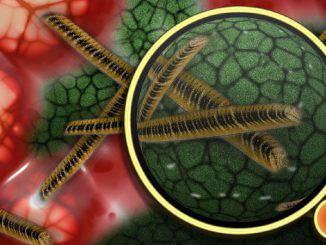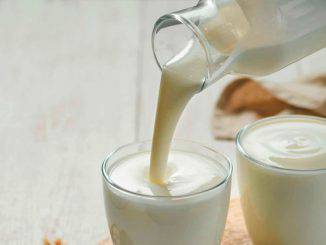
What is osteoporosis?
Osteoporosis is a chronic disease increasingly becoming a major health concern in the entire world.
All bones in the human skeleton bones are in a constant state of renewal and regeneration. New bone tissue is constantly generated, replacing an older one that is being resorbed.
In healthy humans, there is a constant balance between older bones resorption and new bones formation. Osteoporosis is a result of a disrupted balance between these processes of resorption and formation, which with age shifts towards predominant bone resorption. As a result, bones become fragile and prone to fractures.
The cause behind osteoporosis is precisely this loss of balance between resorption and formation of the bones tissue.
Osteoporosis is even more accentuated by the fact that with age the ability of the body to absorb calcium decreases. This process gets additionally augmented in women because of the estrogen deficiency appearing after the age of 50.
In women’s bodies estrogen – the female hormone – stimulates the absorption of calcium and suppresses, both directly and indirectly, the resorption of bones. When estrogen levels start to decrease with age, the balance between resorption and formation of bone tissues gets further disrupted and resorption starts to prevail. That is why osteoporosis primarily affects women, yet men are also not spared.
The direct result of osteoporosis is the increased risk of bone fractures. Bones become frail and prone to easy fractures called “osteoporotic fractures”.
These fractures can substantially decrease the quality of life and even lead to death because of the continued immobility required by the fracture’s healing process. After a certain age, immobility is regarded as a major risk factor and nowadays osteoporotic fractures are a major cause of morbidity and deaths, surpassing even cancer.
How is osteoporosis treated?
The most widespread and recommended approach to treat osteoporosis is the increase of calcium intake to compensate for the decreased ability of the body to absorb it.
However, once the bones density decreases and the bones already get frail, their restoration is rather difficult. That’s why the best treatment of osteoporosis is its prevention. It is much easier to compensate for the predominant bone resorption with increased calcium intake before osteoporosis occurs than trying to revert the process once the bone tissue becomes deteriorated.
Another method of osteoporosis treatment is to reverse bone loss by stimulating the so-called osteoblastic bone formation with the help of drugs containing growth factors, hormones, or fluoride-containing medicines. However, while these drugs can decrease the frequency of fractures, they also have several adverse and sometimes unpredictable side effects.
Nutritional supplements such as vitamins (especially vitamin D), protein, and amino acids are now known to at least temporarily inhibit the development of osteoporosis.
However, the safest, most cost-effective, and natural approach to treat osteoporosis without any side effects is the timely increase of calcium intake. But how to achieve that?
The vital role of calcium
Milk has always been one of the best suppliers of calcium to humankind. It is not by chance that all mammals (including humans) feed their babies solely on breast milk during the period of their growth when they need huge quantities of calcium for the formation and development of their skeleton.
Human breastmilk contains on average 33% calcium and commercially available cow’s whole milk has about 30%. Briefly, about one-third of most milk types are pure calcium! Not bad, you’d say, but there’s a catch! Milk is not always easy to digest.
The problem is that to metabolize the milk (and absorb the calcium it contains) our body needs an enzyme called lactase. Babies have this enzyme in abundance which enables them to fully metabolize their mothers’ breastmilk and make good use of the calcium it contains. However, with age, the secretion of this enzyme in our body decreases, and adults normally metabolize milk much worse than infants. In some extreme cases, they can even violently react to the consumption of milk, which is known as lactose intolerance.
Here comes the help of fermented dairy products, and Kefir in particular.
How can Kefir help to prevent and treat osteoporosis?
Along with their many health-promoting effects, fermented dairy products are recognized by their ability to degrade milk protein into bioactive substances called peptides. These peptides bring important health benefits, amongst which lowering cholesterol and blood sugar levels, many antibacterial, antifungal, and antioxidant effects, and last but not least – a boosting effect on calcium absorption.
Microorganisms in fermented dairy products, Kefir included, contribute to more efficient absorption of milk calcium in two different ways: first – by converting lactose of milk into lactic acids thus reducing potential reactions of lactose intolerance in adults, and secondly – by converting milk proteins into peptides which can enhance and facilitate the metabolization of calcium in our body.
As a result, fermented dairy products like Kefir retain all positive aspects of milk, primarily its high content of calcium, while eliminating its main negative aspect – the difficult absorption of calcium from fresh milk.
So, the consumption of fermented dairy products (and Kefir, in particular) appears to be the best way to supply our bodies with the calcium needed to compensate for the decreased bone density caused by osteoporosis.
Many scientific studies are proving it.
A study published in 2015 involving a randomized, controlled trial of daily Kefir supplementation in osteoporosis patients found a positive correlation of frequent consumption of Kefir with the level of BMD (Bone Mineral Density) or, in other words, with bone health. The study found that daily intake of approximately 700 ml of fermented milk decreases bone resorption and improves calcium balance. It has also been found that calcium supplements derived from fermented milk are more effective than those from any other source.
Another study, using a mouse model to confirm the potential role of Kefir peptides in preventing menopausal osteoporosis, indicated that the protective function of peptides contained in Kefir is independent of calcium supplementation. This means that the peptides contained in Kefir have their distinct positive effect in the prevention of bone deterioration caused by osteoporosis, independent of any additional intake of calcium supplements.
However, besides its undoubtfully beneficial peptides, Kefir has another powerful asset in the fight against osteoporosis: the probiotics it brings to our bodies.
Kefir has been renowned for centuries for its healing effects on the intestinal microbiome, and the enhancements it brings to many of the systems of our bodies, including the immune system, the cardiovascular system, the nervous system, etc.
The news here is that some probiotic bacteria found in Kefir have also a direct impact on the bone system. One of the probiotics found in Kefir – Lactobacillus helveticus – was found to directly speed up the metabolization of calcium and slow down calcium loss in postmenopausal women.
Indeed, many studies have found enough clinical evidence about the direct correlation between Kefir and a series of positive effects on bone mineral density (BMD). Although the full role of Kefir in the prevention and delay of osteoporosis still needs more clinical validation, the results of all scientific research so far are more than convincing.
Summary
All bones in the human skeleton bones are in a constant state of resorption and formation. Osteoporosis is a result of a disrupted balance between these processes of resorption and formation, which with age shifts towards predominant bone resorption.
As a result, bones become fragile and prone to easy fractures called “osteoporotic fractures”. These can substantially decrease the quality of life and even lead to death because, after a certain age, immobility is regarded as a major risk factor. Nowadays osteoporotic fractures are considered a major cause of morbidity and death.
The recommended approach to prevent or treat osteoporosis is the increase of calcium intake to compensate for the decreased ability of the body to absorb it.
While the main source of calcium for humans has always been milk, after certain age milk is no longer easily digested by seniors, and calcium from fresh milk gets no longer metabolized and absorbed. However, in fermented milk products like Kefir, milk proteins get degraded into bioactive substances called peptides which have, amongst many other benefits, also a boosting effect on calcium absorption.
Briefly, Kefir has all benefits of milk in providing the body with the needed quantity of calcium, while eliminating its main negative aspect – its difficult absorption from fresh milk.
Additionally, some probiotic bacteria found in Kefir, more precisely Lactobacillus helveticus, were found to directly speed up the metabolization of calcium and slow down calcium loss in postmenopausal women.
The consumption of Kefir appears to be the best way to supply our bodies with the calcium needed not only to compensate for the damage caused by osteoporosis but also to prevent it and stop its development.
Related questions
- Are men and women equally affected by osteoporosis? While men are not completely spared, women tend to be more affected by osteoporosis. The reason is that estrogen – the female hormone – has the effect of suppressing bone resorption. When estrogen levels decrease with age, the balance between bones resorption and formation of bone tissue gets disrupted and resorption starts to prevail.
Related resources
- What is kefir?
- Kefir benefits.
- Kefir pros and cons
- Can Kefir help with high blood pressure?
- Can Kefir help with acid reflux?
- Kefir and IBS
- Kefir and Diabetes
- Can Kefir help with SIBO treatment?
- Is Kefir good for the skin?
- Kefir and lactose intolerance
- Is Kefir safe during pregnancy?
- Is Kefir safe while breastfeeding?
- Can Kefir help with weight loss?



